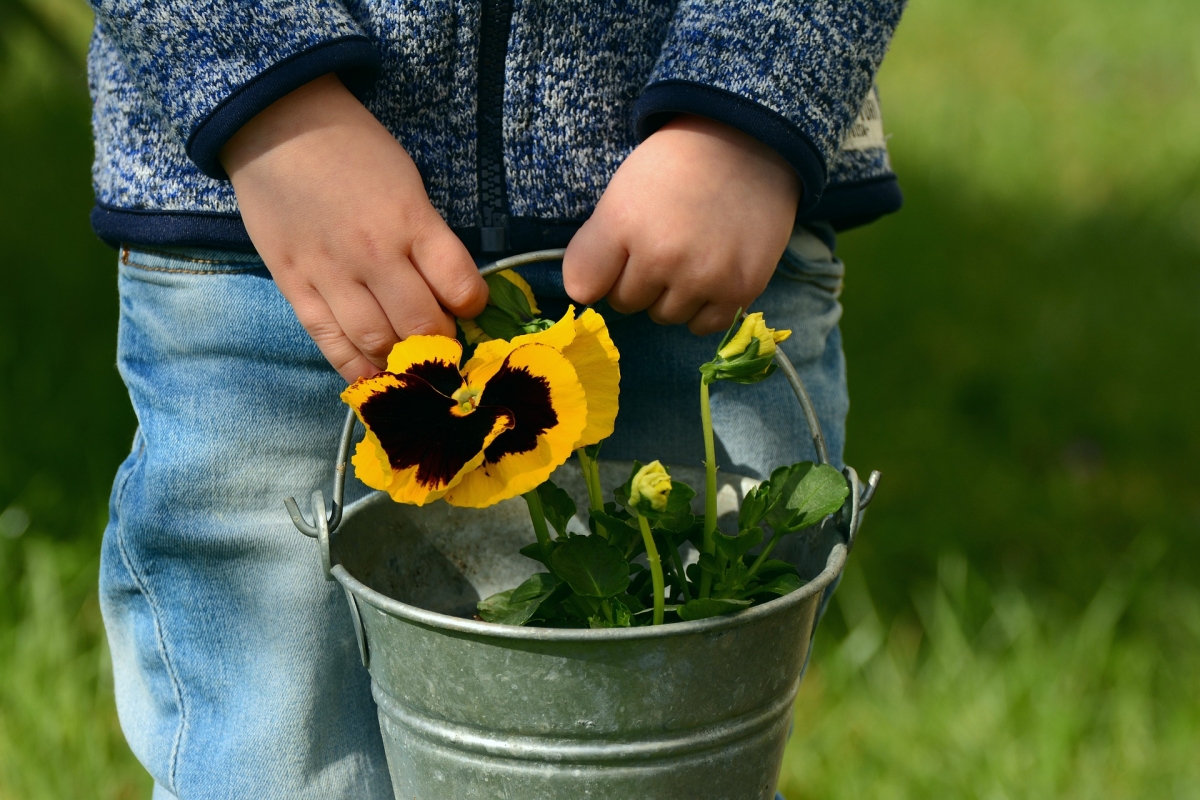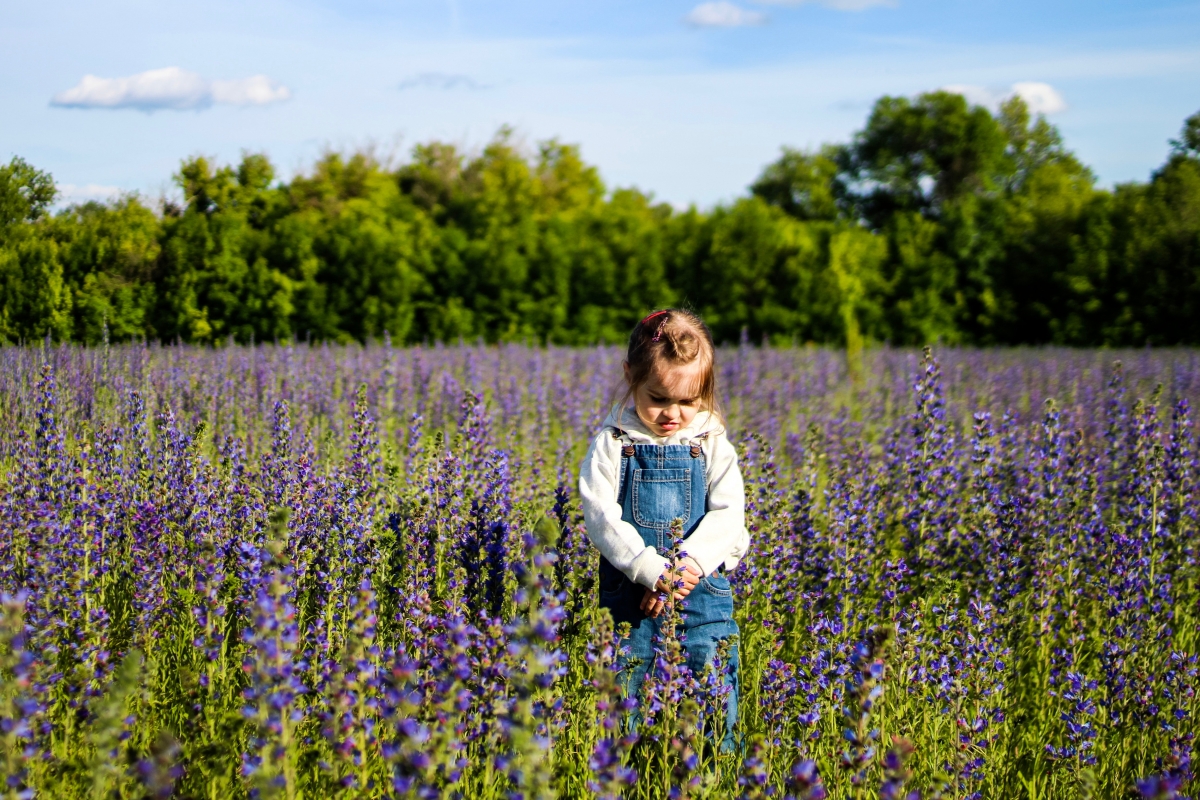 To nurture our Secure & Calm Heart-Mind quality, we might just have to get our hands dirty! Research shows that exposure to a type of bacteria that lives in the soil can decrease stress and inflammation.
To nurture our Secure & Calm Heart-Mind quality, we might just have to get our hands dirty! Research shows that exposure to a type of bacteria that lives in the soil can decrease stress and inflammation.
In our age of complexity, it may seem too simple that to get grounded, we literally need to get in touch with the ground. Older generations perhaps know this intuitively - a knowledge that has ceased to transmit intergenerationally as we become more fragmented both from nature and from the elders in our communities. Scientific research is just starting to catch up with what generations before us knew and practiced both recreationally and to support their livelihoods - that being in nature is good for us, and that being physically in touch with the earth heals.
Picture a gardener, kneeling in the dirt with their hands gently folding seeds into the earth. We have long associated the activity of gardening with calmness and serenity - and we are only now uncovering all of the reasons why! One reason, among several, being the discovery of anti-inflammatory fats that are a part of soil composition thanks to beneficial bacteria.[1]
The bacterium in question - Mycobacterium vaccae - produces a healthy, stress burning fat that decreases inflammation, which is a risk factor for stress-related disorders such as anxiety and depression, as well as trauma-related disorders like PTSD, and even auto-immune disorders. In one study, mice injected with Mycobacterium vaccae were less likely to experience severe symptoms of stress[2] following a stressful event, and were also less anxious in later stressful situations, leading scientists to suggest it may act similar to anti-depressants. This finding contributes to our understanding of why children raised in rural environments, with regular exposure to farm animals, tend to respond better to stress as adults[3] than those raised in animal-free urban environments.
While scientists haven't yet developed a "stress vaccine," the discovery of this anti-inflammatory fat brings them one step closer. In the meantime, we can simply roll up our sleeves with the young people we care about and get our hands dirty in order to reap its stress-busting benefits!
3 Ways to Get Dirty to Feel Calmer (for toddlers, children, and teens)
Toddlers: Have you ever met a toddler who doesn't love getting their hands dirty? Nurturing very young children's Secure & Calm Heart-Mind quality through some hands-on mud play is simple, messy, and fun. Set up a "mud kitchen" in your backyard: install an old play kitchen, sand tray, or low table outside and furnish with cast-off pots, pans, ladles, and other kid-safe kitchen ware. Then just add water (or wait for it to rain!), pour in some sand and dirt[4], and join your toddler in making marvelous mud-pies and sand-wiches to their heart's content.
 Children: Children as young as 4 or 5 can take an active role in planting a simple wildflower garden[5]. When safe and suitable, work with your bare hands rather than tools in order to reap the benefits of soil on the skin. Clear a suitable patch of dirt from weeds and debris. Ensure it will receive lots of sun. Add a layer of fresh topsoil, mix in some compost, and follow the directions on your seed package for planting seeds. Wildflowers grow easily and plentifully, so you shouldn't need to be too careful - sometimes you can just scatter them freely. Water well and with care not to wash away your seeds. Keep to a regular watering routine, wait, and watch as your plot is transformed into a sea of colour! (bonus points for choosing flowers to represent the colours of all 5 Heart-Mind qualities!).
Children: Children as young as 4 or 5 can take an active role in planting a simple wildflower garden[5]. When safe and suitable, work with your bare hands rather than tools in order to reap the benefits of soil on the skin. Clear a suitable patch of dirt from weeds and debris. Ensure it will receive lots of sun. Add a layer of fresh topsoil, mix in some compost, and follow the directions on your seed package for planting seeds. Wildflowers grow easily and plentifully, so you shouldn't need to be too careful - sometimes you can just scatter them freely. Water well and with care not to wash away your seeds. Keep to a regular watering routine, wait, and watch as your plot is transformed into a sea of colour! (bonus points for choosing flowers to represent the colours of all 5 Heart-Mind qualities!).
Teens: Appeal to teens' sense of adventure by spending time together in wild nature, such as the mountains or forest. Plan a family hike or an outdoor adventure field trip. During water or rest breaks, encourage youth to get curious about the ground under their feet. What does the soil feel like rubbed between two fingers? Is it grainy like sand? Soft like flour? What about the colour or wetness? Are their pebbles or leaf fragments within it? Living things? This activity is as much a mindfulness exercise as it is a science one. Bring along glass jars or ziplock baggies to take soil samples, label them with the location they were collected from (eg. near a stream, in the alpine, under a thick grove of trees), and bring them back to the home or lab for closer examination.
A 2016 study from Germany found that injecting mice with Mycobacterium vaccae prevented them from experiencing certain negative effects of stress, such as fear- and anxiety- related behaviors, and even colitis. The researchers concluded that this bacterium could potentially be used in the prevention and treatment of anxiety, depression, PTSD, and other disorders that are linked to inflammation.
For a detailed guide to planting a wildflower garden, click "more".
Click "more" for a more detailed guide to planting a wildflower garden.
One way to make mud is by mixing 50% sandbox sand with 50% potting soil, and stirring in enough water to make it moldable.
A 2019 study from the University of Colorado, Boulder, isolated an anti-inflammatory fat produced by the soil bacterium Mycobacterium vaccae and tested it in rodent macrophages (white blood cells), which are a part of the immune system. They found that the fat decreased markers of inflammation. The researchers concluded that bacterially derived anti-inflammatory fats have potential to be used therapeutically to prevent and treat inflammatory disease and stress-related psychiatric disorders that are rooted in immune dysfunction and inflammation.
A 2018 study conducted by researchers in Germany found that healthy young adults (aged 20-40) who had spent their childhoods (until age 15) on a farm that raised farm animals exhibited a reduced inflammatory response to a psychosocial stressor imposed through the experiment than healthy young adults who grew up in an urban area without pets.